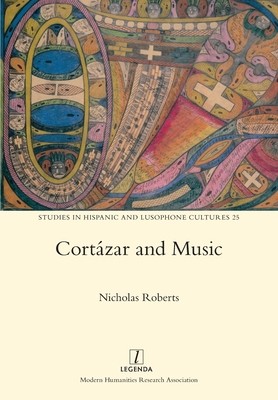
- We will send in 10–14 business days.
- Author: Nicholas Roberts
- Publisher: Legenda
- ISBN-10: 1781888086
- ISBN-13: 9781781888087
- Format: 17 x 24.4 x 1.5 cm, minkšti viršeliai
- Language: English
- SAVE -10% with code: EXTRA
Reviews
Description
Music pervades the work of the Argentine author Julio Cortázar (1914-1984). From the classical strains of a Mozart string quartet to Carlos Gardel's iconic tango recordings and Charlie Parker's insistent bebop improvisations, Cortázar's texts return time and again to the different musical predilections and interests of their author. In this wide-ranging study, Nicholas Roberts examines not just the role played by music in numerous essays and fictions by Cortázar, but how diverse musical genres and styles are used and appropriated by the author as an axial and determining element of his thought and praxis. Accordingly, this study illuminates not only Cortázar's engagement with music, but the broader ontological and linguistic concerns that lie at the heart of his work.
Nicholas Roberts is Associate Professor in Hispanic Studies at Durham University.
EXTRA 10 % discount with code: EXTRA
The promotion ends in 23d.17:08:43
The discount code is valid when purchasing from 10 €. Discounts do not stack.
- Author: Nicholas Roberts
- Publisher: Legenda
- ISBN-10: 1781888086
- ISBN-13: 9781781888087
- Format: 17 x 24.4 x 1.5 cm, minkšti viršeliai
- Language: English English
Music pervades the work of the Argentine author Julio Cortázar (1914-1984). From the classical strains of a Mozart string quartet to Carlos Gardel's iconic tango recordings and Charlie Parker's insistent bebop improvisations, Cortázar's texts return time and again to the different musical predilections and interests of their author. In this wide-ranging study, Nicholas Roberts examines not just the role played by music in numerous essays and fictions by Cortázar, but how diverse musical genres and styles are used and appropriated by the author as an axial and determining element of his thought and praxis. Accordingly, this study illuminates not only Cortázar's engagement with music, but the broader ontological and linguistic concerns that lie at the heart of his work.
Nicholas Roberts is Associate Professor in Hispanic Studies at Durham University.


Reviews